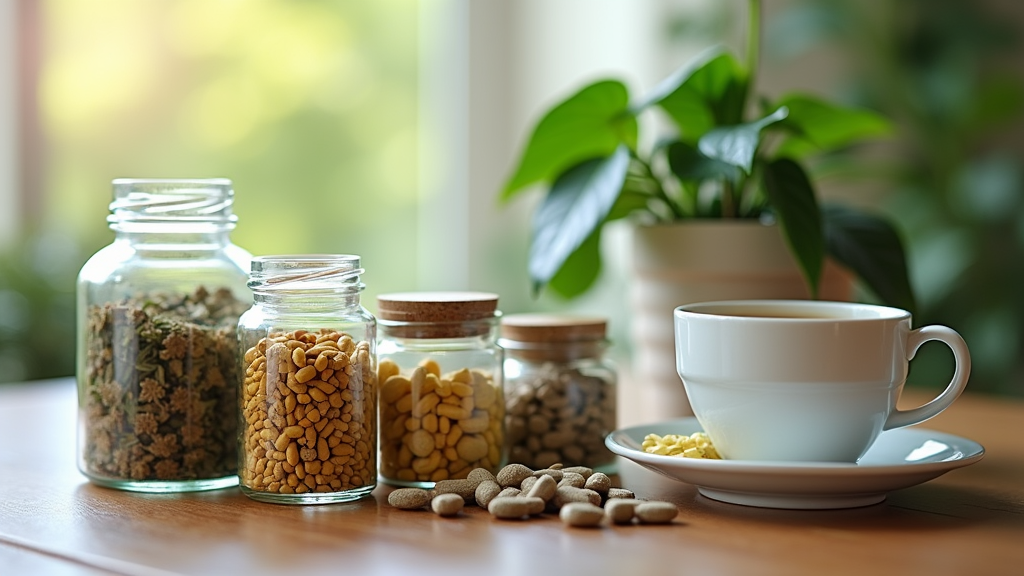Trying to support your mental health can feel a bit overwhelming. There’s a ton of information about which supplements work and which are just hype. I’ve spent years researching and trying out different approaches to mental wellness, so I put together this guide to make it easier for anyone who wants real, practical advice about supplements for mental health.

Why Consider Supplements for Mental Health?
Supplements aren’t a replacement for therapy, medication, or healthy lifestyle habits, but they can complement other approaches when used mindfully. Many people turn to supplements hoping for support with things like stress, anxiety, memory, or mood swings. Research into this area is growing, and while some supplements have solid evidence backing their use, others are still being studied.
Nutrition and mental health are more connected than most people realize. Certain vitamins, minerals, and plant based compounds are involved in brain chemistry, nerve function, and emotional balance. If your diet is lacking, supplements might fill in some gaps and help you feel more balanced.
Understanding the Basics: What Are Mental Health Supplements?
Supplements for mental health usually fall into a few main groups:
- Vitamins and Minerals: These include basics like B vitamins and magnesium, which are known to keep your nervous system in shape.
- Herbal Supplements: Ingredients like ashwagandha and St. John’s Wort are plant based and have a long history in traditional healing.
- Omega-3s and Fatty Acids: Known for their brain boosting effects, especially those found in fish oil or algae oil.
- Amino Acids and Probiotics: Lesser known but still pretty helpful for mood and brain health.
Always keep in mind that supplements can interact with medications and may cause side effects. It’s a smart move to talk to your healthcare provider before starting anything new, especially if you’re currently on medication or living with a health condition.
Here is a helpful link to check out some supplements for mental health:
“Here’s a little transparency: Our website contains affiliate links. This means if you click and make a purchase, we may receive a small commission. Don’t worry, there’s no extra cost to you. It’s a simple way you can support our mission to bring you quality content.”
Quick Guide to Choosing Mental Health Supplements
Figuring out what works for you involves a bit of trial and error. Here are some steps I use (and recommend):
- Start with Your Goals: Are you dealing with stress, low mood, brain fog, or trouble sleeping? Knowing what you want to support makes it easier to zero in on the right product.
- Read the Labels: Make sure you’re getting the dosage that research studies have used. Too little probably won’t help. Too much can cause problems.
- Choose Trusted Brands: Look for certifications from third party testers like NSF International, USP, or Consumer Lab for extra peace of mind.
- Give It Time: Supplements usually don’t work overnight. Most take a few weeks of regular use before you notice any difference.
- Keep Track of Changes: A journal can make it easier to spot what’s working and what’s not, especially if you’re trying more than one supplement at once.
Smart Things to Consider Before Trying Supplements
Supplements can make a big difference for some people, but everyone’s body and mind react a bit differently. A few important things to keep in mind:
- Quality Matters: Not all supplements are made equal. Some use cheap fillers or have inaccurate ingredient lists.
- Potential Interactions: Make sure the supplement doesn’t interact with any current meds or medical conditions. For example, St. John’s Wort can affect antidepressants, and high doses of omega3 can thin your blood.
- Underlying Deficiency: Sometimes, supplements only help if you’re low or deficient in a certain nutrient. If you already get enough from your diet, extra amounts may not give extra benefits.
- Safe Dosage: Higher isn’t always better. More isn’t always safe, especially with fat soluble vitamins or strong herbs.
- Consistency: Supplements work best when you’re consistent. Skipping days here and there can make results harder to notice.
B Vitamins
B vitamins, like B6, B9 (folate), and B12, play a positive role in regulating mood and supporting energy levels. Low levels of these vitamins are sometimes linked to higher rates of depression or increased stress. I find B complex supplements handy during busy, stressful periods, though I try to get most of my B vitamins from whole foods when I can.
Omega-3 Fatty Acids
Omega3s are usually on the top of my list. Found in fatty fish and some plant oils, these healthy fats support brain cell structure and communication. Research suggests they help with mild depression and may reduce anxiety. If you don’t eat a lot of fish, a high quality fish oil or algae oil capsule is a good option.
Magnesium
Magnesium is a mineral a lot of people are low on, and low magnesium is often connected to increased stress and poor sleep. I lean on magnesium glycinate or magnesium citrate before bed for a calming effect, and it’s one of the few supplements where I notice a real subtle difference in sleep and mood balance.
Adaptogenic Herbs
Adaptogens like ashwagandha and rhodiola help the body cope with stress. I turn to these when I’m going through a particularly demanding stretch, like a big project at work. Ashwagandha has some good research for reducing cortisol (the body’s stress hormone). Rhodiola seems to boost energy and focus.
Probiotics
The gut brain connection is strong, and sometimes issues like brain fog or mood swings have ties to gut imbalances. While probiotics alone won’t solve all mental health issues, a balanced gut microbiome can support better overall brain health. I look for a broad spectrum probiotic or foods like yogurt and kimchi to keep things in check.
St. John’s Wort
This herb has been used for centuries to lighten low moods. There’s evidence that it works for some people with mild to moderate depression, but it’s known for interacting with many medications. I always recommend chatting with a doctor before adding this one to your supplement routine.
Advanced Tips for Getting the Most Out of Your Supplements
Supplements work best as part of a bigger plan, not in isolation. Some practical strategies I use to maximize results include:
Pair with Whole Foods: Nutrients in supplement form are helpful, but they work even better alongside a varied, healthy diet. Healthy fats, leafy greens, and lean proteins all support mental wellness naturally.
Personalize Your Routine: I consider my own body’s needs and sensitivities. For instance, certain adaptogens make some folks jittery. Others feel calm. It’s about what works for you.
Mind Regular Check-ins: Even if a supplement helps at first, it makes sense to check in after a few months. Bodies and needs change all the time, so adjusting your routine can keep things fresh and effective.
Keep Everything Transparent: Jot down what you’re taking and share it with your healthcare provider, especially during routine visits. It helps them spot any potential red flags.
The Basics: Supplements for Everyday Mental Wellness
Maintaining mental balance doesn’t mean popping a dozen pills a day. Here’s what works best for me and for many people I know:
- Focus on Foundationals: Start with a multivitamin if your diet needs support, then layer on omega3s or magnesium as needed.
- Try Herbs Thoughtfully: Use adaptogenic herbs in short cycles, rather than all the time, to avoid building up tolerance or experiencing unknown effects.
- Hydrate and Move: Supplements are only part of the puzzle. Drinking plenty of water and keeping active will do as much (if not more) for your brain as any capsule.
In my day to day routine, I like to keep things simple and pay attention to how I feel in both my head and body, adjusting as needed. It also helps to connect with others on the mental health journey to share experiences and recommendations, since everyone’s path will look a little different. Community support can often offer tips you might not stumble upon otherwise, and sometimes just knowing you’re not alone can boost your progress.
Frequently Asked Questions
These questions come up a lot when talking about mental health supplements:
Question: Which supplement is the best starting point for beginners?
Answer: If you’re new to supplements, omega3s and magnesium are a good place to begin. They’re generally well tolerated and have a ton of research backing their role in brain health.
Question: Can supplements cure anxiety or depression?
Answer: Supplements alone won’t “cure” mental health conditions. They can be one tool in a bigger picture that includes therapy, medication if needed, and lifestyle changes.
Question: How long before I notice any changes?
Answer: Many supplements take anywhere from two to six weeks before you feel a difference, so patience is key.
Question: Are all “natural” supplements safe?
Answer: Not always. “Natural” doesn’t mean risk free. Always check for potential interactions if you’re on prescription medications.
Wrapping Up: Finding What Works for You
The world of mental health supplements is huge, and everyone’s experience is a little different. Careful research helps folks make more informed decisions. Starting slow, being patient, and staying honest with yourself (and your doctor) about what you’re taking is super important. When you find a combo that helps you feel more balanced, energized, or calm, stick with what works.
Feeling your best mentally is about what fits your life, your body, and your goals. Supplements can play a helpful role, but they’re just one part of a bigger picture. Never hesitate to ask questions or switch things up if something isn’t working for you—because this is your adventure, and you know yourself best.
